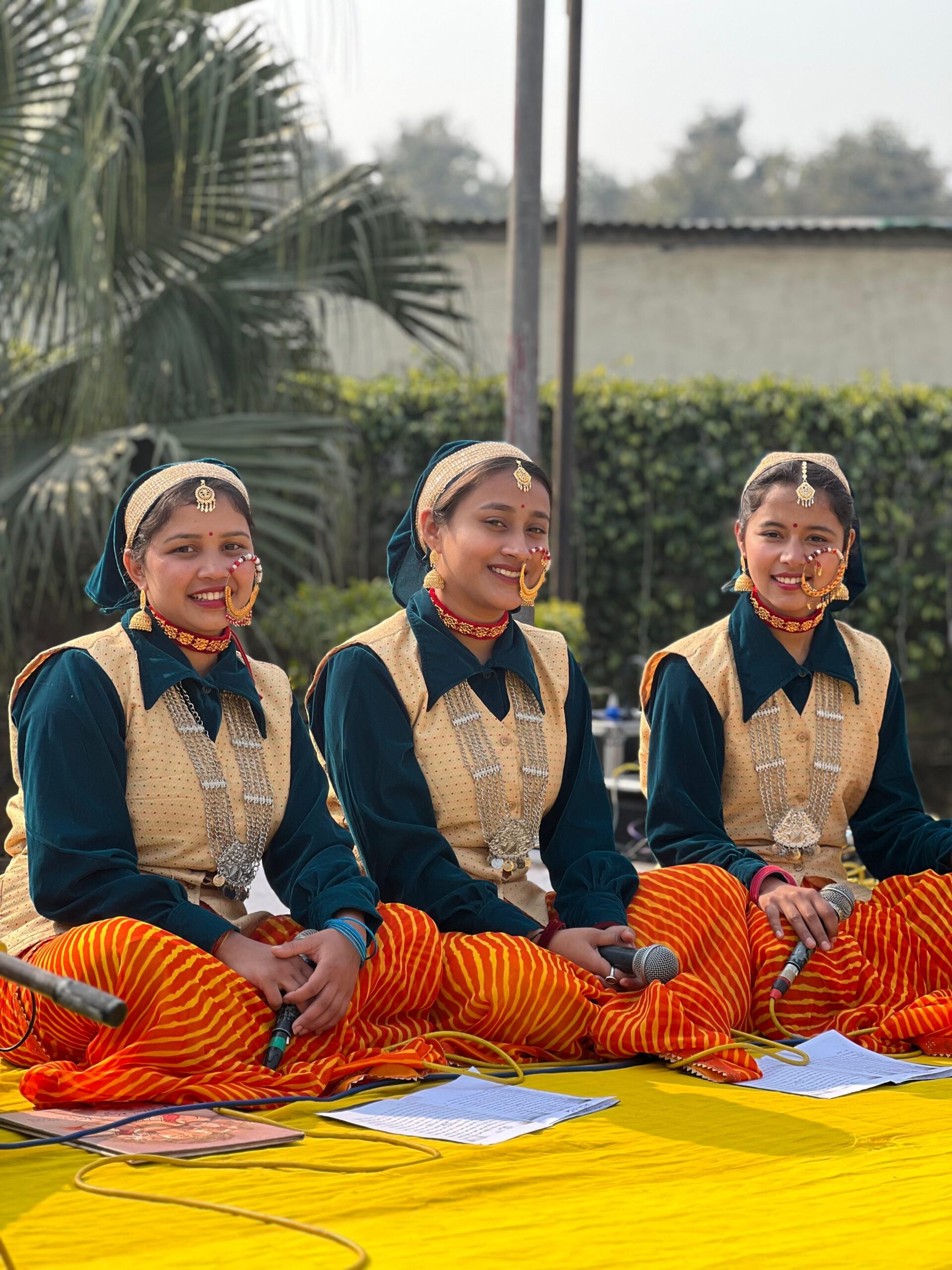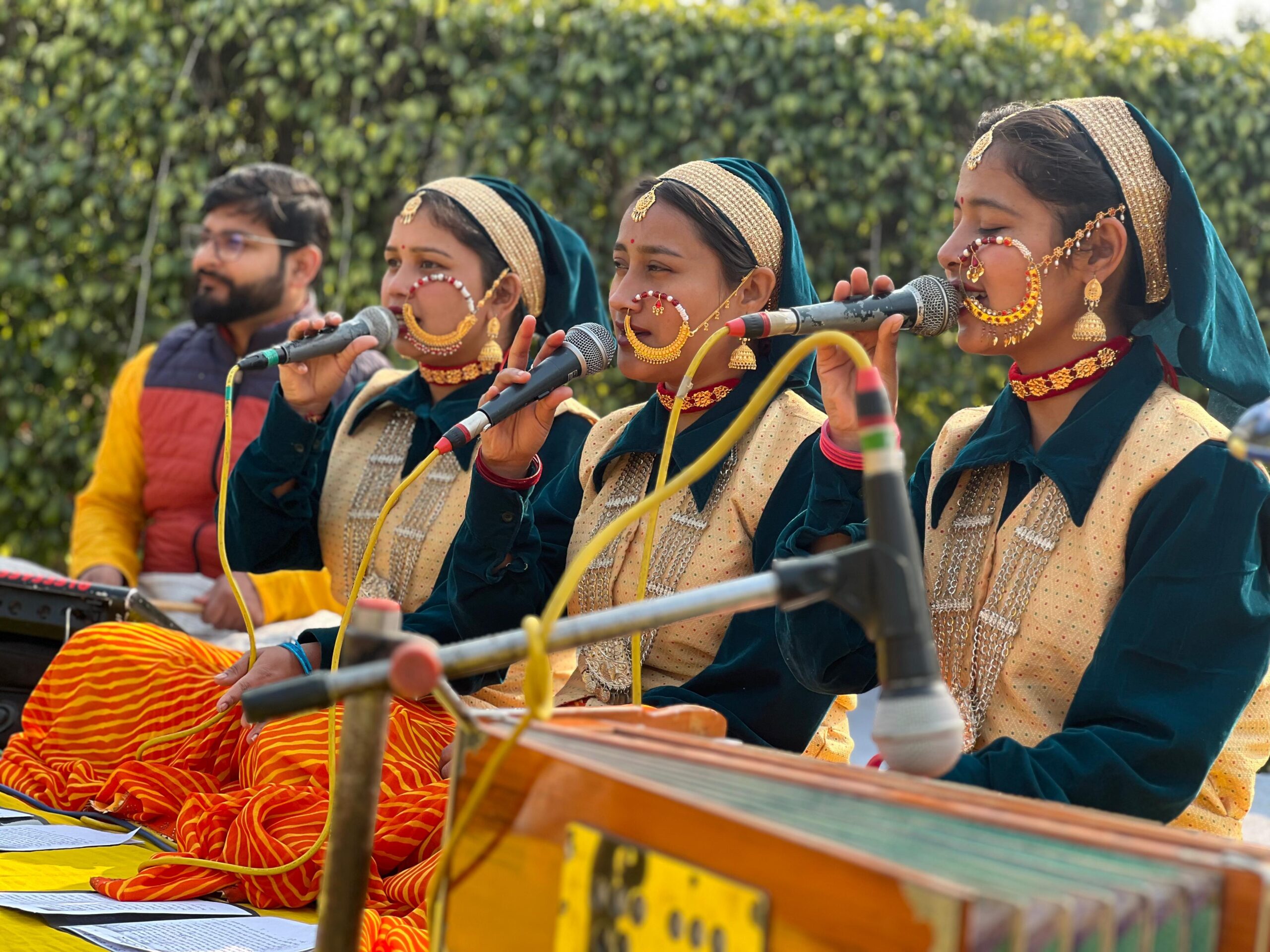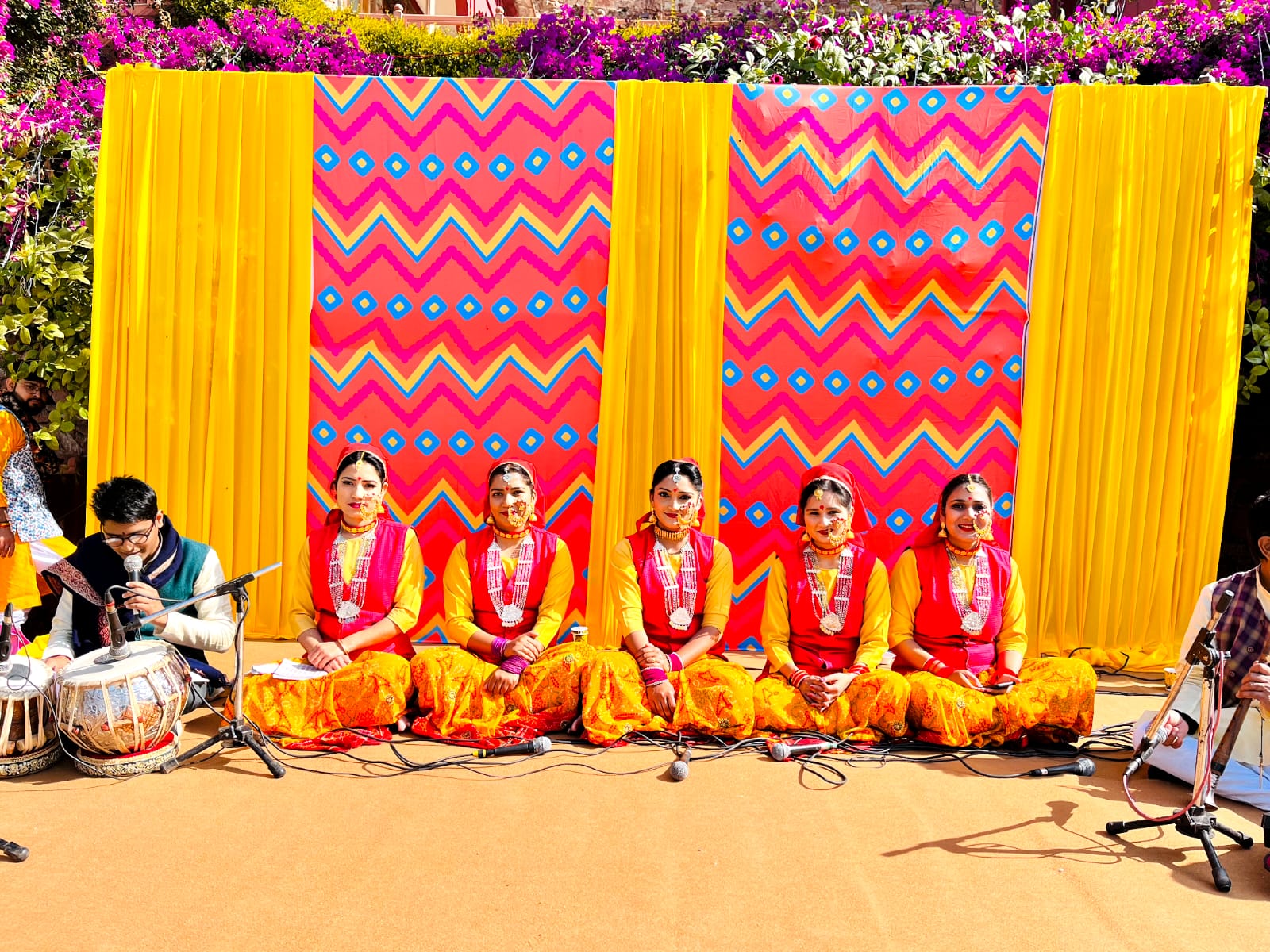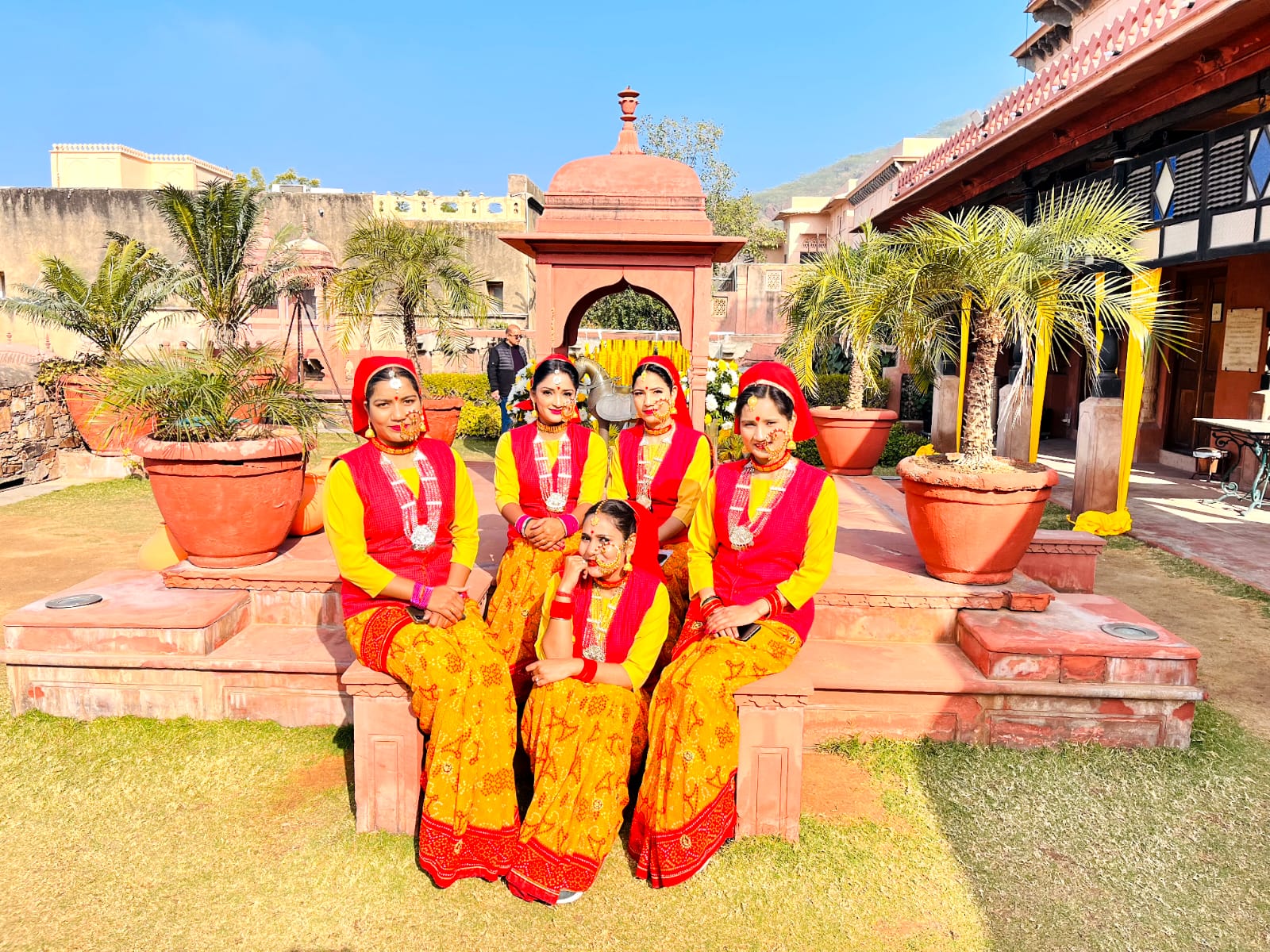
Introduction to Mangal Geet
In Kumaoni and Garhwali weddings, Mangal Geet holds profound significance beyond mere entertainment. Mangal Geet used to be special songs sung during wedding ceremonies in the past. They weren’t just for fun but were meaningful blessings for the newly married couple.
Traditionally, these songs were vehicles of blessings for the newly married couple, symbolizing wishes for their happiness and prosperity. Sung during key rituals like the wedding vows (feras), the turmeric ceremony (haldi), and when welcoming the groom’s procession (baraat), Mangal Geet encapsulate the rich cultural heritage and traditions of the region, imparting authenticity and depth to the wedding festivities.
Rediscover the Joy of Wedding Songs
Immerse yourself in the rich tapestry of Garhwali & Kumaoni culture with Maangal Geet, where timeless melodies meet age-old traditions.
From the vibrant beats of folk tunes to the classical rhythms that echo through generations, our platform is your gateway to the heart and soul of celebratory music. Join us as we celebrate the union of love and tradition through the enchanting world of Maangal Geet.

Who We Are?
We are a passionate team led by the renowned Garhwali singer, Saurav Maithani. With a deep understanding and appreciation for the cultural heritage of the Garhwali and Kumaoni regions, we are dedicated to preserving and celebrating traditions through the art of Mangal Geet. Our collective expertise ensures that every aspect of your wedding celebration reflects the authentic essence and richness of our culture. By infusing every celebration with the rich cultural heritage and traditions of the region, we ensure that each wedding is a heartfelt tribute to authenticity and depth, resonating with the timeless melodies led by Saurav Maithani himself.
At Mangal Geet, we extend our services beyond borders, catering to weddings both nationally and internationally. Whether you’re planning a traditional Pahadi wedding in the heart of the Himalayas or a destination celebration halfway across the globe, we’re here to ensure that your special day is filled with the soulful melodies and cultural richness of Mangal Geet.
For further information or to discuss your query with us, please don’t hesitate to get in touch. Whether you have specific inquiries about our services, or are ready to book us for your upcoming celebration, we are here to assist you.



why to choose us?
At Maangal Geet, we’re passionate about preserving the cultural heritage and beauty of Pahadi weddings through the timeless melodies of Maangal Geet. Here’s why you should choose us:
Preserving Authenticity
We understand the significance of Mangal Geet in wedding ceremonies and strive to uphold its authenticity. Our team is deeply rooted in traditional Pahadi culture, ensuring that every aspect of your celebration remains true to its origins. We curate a diverse collection of Maangal Geet, each mangal geet reflects the rich cultural heritage and traditions of Garhwali & Kumaoni with authenticity and depth.
Enhancing Pahadi Weddings
Every Pahadi wedding is a canvas awaiting the strokes of tradition and the hues of authenticity. At Mangal Geet, we're dedicated to helping you make your wedding traditionally beautiful. Meticulously designed to infuse your celebration with the timeless charm of Mangal Geet in its purest form, ensuring that each moment resonates with the rich cultural heritage of the Pahadi region.
Reviving Pahadi Traditions
In today's fast-paced world, preserving cultural heritage is essential. Mangal Geet is dedicated to reviving and showcasing traditional Pahadi wedding customs, fostering meaningful connections for the younger generation with their roots. This may involve reintroducing traditional rituals, ceremonies, music, dance, attire, and other aspects of Pahadi culture that may have faded or been overshadowed over time.